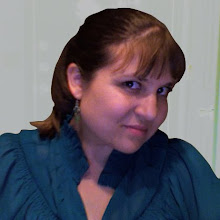It is obvious I had to start somewhere, and I certainly consider this study just that: a start. Just a beginning. Pulling back and looking at what I've done, I can see that I really got caught up in the conventions already found on the internet. Search results will be sorted into a gridded list, they will be clickable, they will all look the same. Users can implement tags, which will function in a very predictable way. Users can filter results using a left-hand column list, again in a very predictable way.
It's funny, I poured many hours into this first execution, thinking these were sound, practical, interesting ideas. However, when I look at them now, I can see that they expand nothing, reveal nothing, and triage nothing. I have created a system with many functions and features, but it doesn't establish an atmosphere of triage at all.
Denise mentioned that triage is really about getting at the essence of the problem, introducing a user into this whole new world that they don't really understand. That it is about the system taking over (and not about allowing a user to still make all their own decisions). This idea of the system completely taking over makes me very uncomfortable (which is why I haven't attempted it yet). I have been very caught up in trying to create something that will do a lot of the "work" for the user, but will still allow for complete flexibility. However, many of the systems out there already do that. Google works because it is simple and flexible. However, there are things about it that don't work because it has been kept simple and flexible. The engine has a certain sense of universality, for good and bad.
I think I need to get out of the mindset of trying to "fix" Google. It is what it is, and many people on their staff work hard to look at the system and make it better, and make it work reasonably well for as many people as possible. Google does what it sets out to do. This is why it's still the most used search engine, and why it has become so ubiquitous in so many ways.
What I think I'm attempting to do, is to highlight other ways that people might search, using other kinds of tools....which really, in the end, need to function in extremely different ways. Looking at Viewzi has been very helpful in this regard. This is a system that someone built which aggregates information FROM Google and others, and then extrapolates that data, that information, in numerous and novel ways. And the power that comes from that is seeing the data sets in these unique shapes and forms.
So, to move on, I need to let go of some of this sense of practicality and resonable-ness, and look at the problem a bit more obliquely (maybe even obtusely). How might a system truly, TRULY triage for a user? What would that look like? And what would the experience be?
Friday, February 12, 2010
Subscribe to:
Post Comments (Atom)


No comments:
Post a Comment